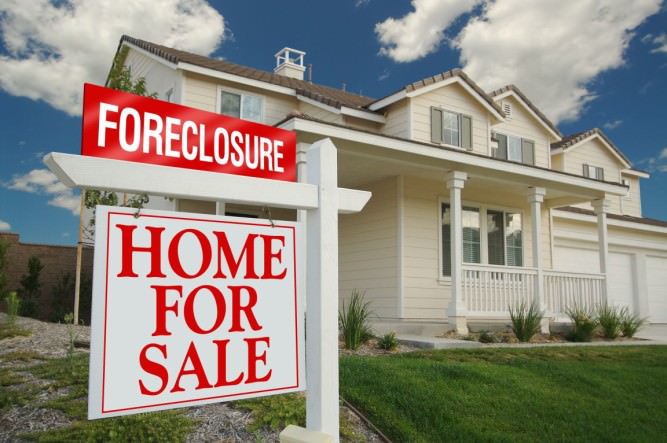
Community Association Foreclosures: A Practice Perspective
This past year, community associations have seen an increasing benefit of implementing foreclosure proceedings against delinquent owners. This article describes the foreclosure process and addresses changes in community association law relating to this process.
In 2004, the Georgia legislature amended the Georgia Property Owners’ Association Act (the “POA”) and the Georgia Condominium Act (the “Condo Act”) to permit judicial foreclosures of an association’s lien, subject to superior mortgages or other liens. As a result, associations governed by the Condo Act and POA are no longer required to pay off an owner’s existing mortgage or any other superior liens prior to foreclosure. However, any mortgage or lien that remains in place against the property after the association forecloses will need to be paid off to avoid a subsequent foreclosure by the holder of that mortgage or lien. The POA and the Condo Act were further amended in 2008 to require the amount of the statutory lien to be at least $2,000.00 prior to the initiation of a foreclosure case. This minimum amount can be comprised of assessments, interest, late charges, reasonable attorney’s fees actually incurred that became due within the last four years, and/or fines which were properly imposed as a result of a violation which occurred within the last two years.
Once the board of directors for your community decides to employ the foreclosure process, the association (generally through its attorney) will send a notice of intent to foreclose to the delinquent homeowner. The delinquent homeowner has 30 days from the date of the notice to pay the amount owed or set up a workable payment arrangement. It should be noted that it is a violation of the Fair Debt Collection Practices Act, 15 U.S.C. § 1692, et seq., to threaten a foreclosure action without having the intent to file such action. If the foreclosure notice does not prompt the homeowner to respond, the association, through its attorney, will file suit seeking an order allowing judicial foreclosure from the court. The foreclosure suit is like any other civil action, and the speed at which the courts process cases and allow an association to obtain a judgment and an order allowing judicial foreclosure varies from county to county.
Once an order allowing judicial foreclosure is obtained, the association, through its attorney, prepares a package that is sent to the sheriff’s office in the county where the property is located. The sheriff’s office sets a date for the foreclosure sale and causes a notice of the foreclosure sale to be published in the county newspaper for four consecutive weeks prior to the date of the sale. The sheriff’s office conducts the sale on the courthouse steps, generally on the first Tuesday of the month. The highest bidder at the foreclosure sale takes title to the property and pays funds to the sheriff’s office. Those funds are subsequently disbursed to the association to cover the association’s lien. The lien includes all costs associated with the foreclosure sale. Generally, the association is the highest bidder at the foreclosure sale because the association’s lien is subject to a mortgage. Most investors do not want to pay off the association’s lien just to be burdened by a mortgage or other superior liens.
There are several possible turns the foreclosure action can take, including: (1) the homeowner may choose to pay while the foreclosure action is pending; (2) the lender may foreclose on the property while the association’s case is pending; (3) the homeowner may transfer title to property to a third party (if the property is conveyed to a third party, the third party is generally joined as a defendant to the association’s lawsuit), or (4) the owner can file for bankruptcy to avoid the foreclosure of the association’s lien. If the owner files for bankruptcy, the property becomes part of the bankruptcy estate, and the foreclosure sale is stayed pursuant to the Bankruptcy Code. It should be noted that bankruptcy discharges only personal debts. Therefore, even if the homeowner’s personal debt is discharged through bankruptcy (particularly in Chapter 7 cases), the association’s lien for assessments is not affected. Consequently, foreclosure proceedings may continue once the owner is no longer in an active bankruptcy or if the bankruptcy stay is lifted.
It is important to understand that a foreclosure sale brought to its conclusion often does not yield recovery of unpaid assessments and charges. The main reason for this is the association’s lien is almost always subject to mortgages on the property or other superior liens. Therefore, investors will generally bid on the association’s lien only if there is enough equity in the property to make bidding on the lien a financially prudent decision. In one of our firm’s recent foreclosure sales, the property was not encumbered by a mortgage, and the association’s lien had priority. The association was able to recover the full amount of the statutory lien, including costs associated with the foreclosure sale. However, this situation is extremely rare.
As long as the association’s board understands the financial implications of foreclosure proceedings and does not have false expectations, this process can be extremely beneficial to your community. Feel free to contact us for more details.
Elina V. Brim, Esq.